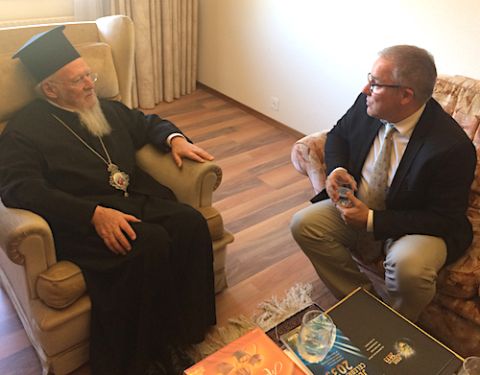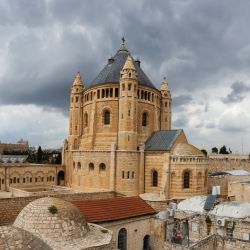"It's a surprising proposition, I'm going to study it", was the first reaction of the patriarch, who was also celebrating the 25th anniversary of his election at the Patriarchate of Constantinople (also known as the Ecumenical Patriarchate).
He particularly emphasized the centrality of the resurrection in the Orthodox Church: "The resurrection is the foundation of our faith. Without it our message is empty. We celebrate Easter with enthusiasm. This holiday is the most important in the Orthodox Church, more than in any other Church. The joy of the resurrection lives in us and we sing it with all creation."
The project "Jesus celebration 2033" also raises the delicate question of the common date of Easter. To this day, the Orthodox Churches using the Julian calendar celebrate it on a different date than the Catholic and Protestant Churches. (some years these dates coincide (2017, 2025, 2028, 2031, 2034,…)
Bartholomew recalled the Ecumenical Patriarchate's desire to unify the date. In the 1970s a symposium was held in Chambésy with scientists: "they convinced us that the way the Orthodox calculate this date was flawed". However, several Orthodox churches refused the conclusions of this study. To impose it would have led to a schism.
Moreover, this subject remains so delicate between the Orthodox Churches that it was not discussed during the Great Orthodox Council in June 2016, in Crete. "I'm in a difficult position, I have to maintain the inter-Orthodox unity and such a subject still divides today," Bartholomew told us.

Olivier Fleury, director of this project, assured him that from now on, we will carry it regularly in our prayer.
At the end of the meeting, the Patriarch invoked the guidance of the Holy Spirit and asked Archbishop Job Getcha, representative of the Ecumenical Patriarchate to the World Council of Churches, to be the liason between Jesus Celebration 2033 and the Patriarchate.



